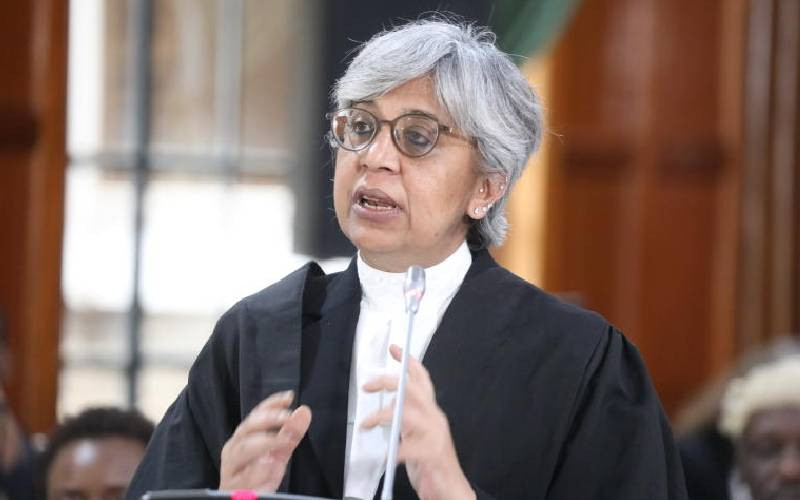×
The Standard e-Paper
Stay Informed, Even Offline

Lawyer Zehrabanu Janmohamed during the presidential petition at the Supreme Court, Nairobi September 2, 2022 [David Gichuru, Standard]
If tradition had had its way, senior counsel Zehrabanu Janmohamed would have been married at 17.